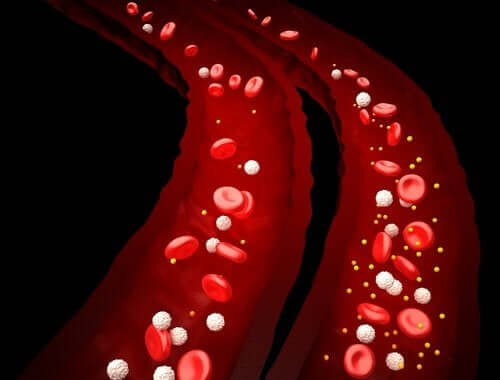Causes and Treatment of Metabolic Acidosis

Metabolic acidosis causes a reduction in the body’s bicarbonate concentration. Therefore, it acidifies the pH in the blood. Then, this reduction comes with a compensating drop in the partial pressure of carbon dioxide. Basically, it’s an acid-base balance abnormality that causes the blood to have too much acid.
There are several severity levels, some of which may be fatal.
Metabolic acidosis is an acid-base balance disorder that lowers the blood’s pH, lowers carbon dioxide levels, and causes hyperventilation as a compensatory mechanism.
The Causes of Metabolic Acidosis

Typically, the onset of metabolic acidosis is caused by more than one mechanism at once, such as:
- Excessive intake or excessive endogenous production of nonvolatile acids. For example, diabetic ketoacidosis, lactic acidosis, or acidosis caused by acid precursor intake can all cause this.
- Kidney bicarbonate regeneration alteration (acidosis in chronic or acute kidney failure) or impaired proton excretion in the distal tubules (distal renal tubular acidosis).
- Loss of basic substances. Typically, this loss can occur in the kidneys or digestive tract.
The symptoms of metabolic acidosis
The symptoms of metabolic acidosis aren’t specific. For this reason, this condition can be hard to diagnose. However, if the patient has clear indications that would make a medical professional request an arterial blood gas test, then it’s easier.
Overall, the symptoms these patients suffer from include:
- Chest pain.
- Palpitations.
- Headache.
- Altered mental status. Overall, this includes severe anxiety, decreased visual acuity, and nausea. Also, vomiting, abdominal pain, appetite changes, and weight loss may occur.
- Finally, those who suffer from metabolic acidosis often manifest Kussmaul breathing. This type of breathing is deep and rapid and often accompanies diabetic ketoacidosis.
You should also read: Improve Kidney Function with These Foods
Moreover, extreme acidosis can lead to neurological and cardiac complications:
- Neurological complications. Overall, this includes lethargy, stupor, coma, and seizures.
- Cardiac complications. Arrhythmias and a decreased epinephrine response may occur. Plus, both situations lead to hypotension.
- Severe metabolic acidosis can lead to shock or death.
Diagnosis

Overall, certain tests can help diagnose metabolic acidosis. Also, they can help determine whether the cause is a respiratory condition or a metabolic problem.
Typically, the tests may include:
- Arterial blood gas tests.
- Comprehensive metabolic panel. This is a set of blood tests that measure blood sodium and potassium levels, kidney function, and other chemicals and functions.
- Urine pH.
- Urine and blood ketones.
- Lactic acid test.
Also, you may want to read: The Most Effective Natural Remedies for Diabetes
Treatment of metabolic acidosis
First, medical professionals must prescribe treatment for the cause that triggers the disorder. Patients with kidney failure require hemodialysis. Sometimes, doctors also use this for individuals with ethylene glycol, methanol, and salicylate poisoning.
Then, in cases of serious acidosis, doctors typically administer sodium bicarbonate. However, they must do this with caution. This is because it’s harmful in certain circumstances.
Overall, bicarbonate therapy is generally safe and appropriate. However, when the acidosis is due to an accumulation of organic acids, this therapy is controversial. This is because it doesn’t significantly reduce mortality rates in these conditions. Plus, it may come with certain risks.
However, despite these and other controversies, most experts still recommend intravenous bicarbonate administration for severe metabolic acidosis, which causes below 7.1 blood pH levels.
All cited sources were thoroughly reviewed by our team to ensure their quality, reliability, currency, and validity. The bibliography of this article was considered reliable and of academic or scientific accuracy.
- Vargas Flores, T. (2014). Acidosis metabólica. Revista de Actualización Clínica Investiga.
- Scharnagl, H., März, W., Böhm, M., Luger, T. A., Fracassi, F., Diana, A., … Goffin, E. (2010). Acidosis, Metabolic. In Encyclopedia of Molecular Mechanisms of Disease. https://doi.org/10.1007/978-3-540-29676-8_16
- Márquez-gonzález, C. H. (2012). gasometría durante la guardia. Rev Med Inst Mex Seguro Soc.
This text is provided for informational purposes only and does not replace consultation with a professional. If in doubt, consult your specialist.








